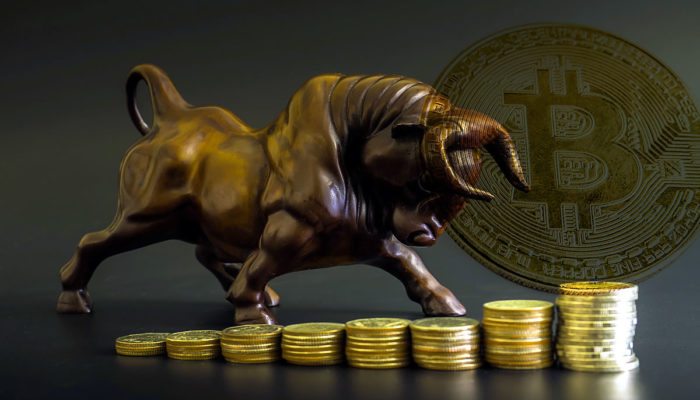
While yesterday’s pullback of Bitcoin’s price may have irked more than a few investors, many industry leaders remain bullish on the price of crypto assets, including Wall Street’s “Crypto King.”
Bitcoin Holding At $6,800 and $7,500 Is A Bullish Sign
Bart Smith, Susquehanna’s head of digital assets, recently revealed that he doesn’t see the Winklevoss ETF verdict, along with the subsequent drop-off as bearish signs. Speaking with CNBC’s Fast Money panel of traders and analysts, the so-called “Crypto King” brought attention to the heavily-cited $6,800 support level.
Wall Street's #crypto king Bart Smith sees these as the next key levels for #bitcoin as it tumbles below $8k pic.twitter.com/QbJY2Goh5X
— CNBC's Fast Money (@CNBCFastMoney) August 1, 2018
As Smith noted, many technical analysts, like Robert Sluymer from Fundstrat, see $6,800 as a vital level, so the most recent move above that price is a promising sign. The expert attributed the 30% bounce off year-to-date lows to the positive news regarding the VanEck and SolidX ETF.
The Susquehanna executive went on to note that if Bitcoin stabilizes above $6,800 and $7,500, it is likely that the bears won’t return, or at least not anytime soon. After seeing a loss of 7% over the past forty-eight hours, Bitcoin has since rebounded off the $7,500 support level, currently at $7,650 as of the time of writing. Moving forward, Smith hopes to see higher lows, coupled with higher highs, as a potential precursor to a longer-term upward trend.
As reported by NewsBTC previously, Mike Novogratz, another influential investor in this industry, also expects Bitcoin to continue to do well moving into future, recently advising his followers to “stay long.”
“Smart Regulation, Not More Regulation”
Fulfilling the seemingly obligatory need for discussion around the Winklevoss ETF verdict, Susquehanna’s digital asset expert, implied that the fact that Bitcoin didn’t drop under key resistance levels due to the manipulation and liquidity concerns is a positive signal.
This comment from Smith sparked a question from a Fast Money trader, who asked if bulls want “more regulation, less regulation or more adoption.” The panelist later elaborated, stating:
“When I talk to guys and speak to global funds every day, I want to know how people can get a little more liquidity in these names, but in and out quicker and how they can have the right to trade this on their desk. I don’t even know what I am hoping for if i’m a bull right now.”
Responding to this concern, Smith pointed out that he sees qualified custodians, along with more institutional support for crypto-based futures. While futures have yet to see countrywide, or worldwide adoption, the analyst clarified that there is already a substantial amount of liquidity there, with U.S. markets posting a daily volume figure of a hefty $650 million.
Another hope for bulls is the introduction of a “brand name pension fund, endowment foundation, or insurance company” into the industry, which many have seen as a long time coming. The allocation of even just 1% of an institution’s liquid assets to Bitcoin, which has a close-to-zero correlation with traditional markets, would decrease their risk profile.
Attempting to help make this concept meld with viewer’s minds better, Smith brought up Square’s stock, which is apparently half as volatile as Bitcoin. So if a consumer was to own 66% of Square Stock and 33% in Bitcoin, the investor is basically taking on the same amount of risk in each asset. Bringing this into the context of institutions, the cryptocurrency investor noted:
“As soon as institutions start thinking about Bitcoin as that, and not as this scary thing that needs to be regulated, I mean, it’s about smart regulation, it’s not about more regulation… we also want regulatory clarity.”
The Susquehanna representative, known better as the “Crypto King” to Fast Money viewers, closed off his time on the show, restating his bullishness on the long-term prospects of this industry. He stated:
“This is a long game, and I think that a lot of the things are happening out there that people see as an opportunity, and we’re going to continue to see institutional adoption and the plumbing get built so that can happen.”



